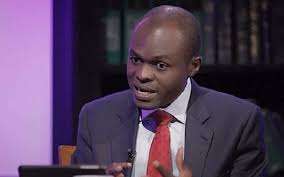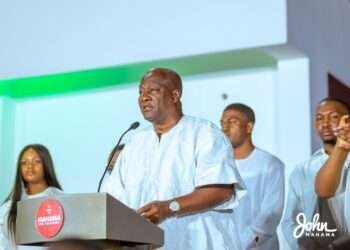The Ghana Statistical Service (GSS) has revealed that about 8 million persons in the country are illiterate.
According to the Service, Ghana has lower levels of adult literacy compared to its comparators in the lower middle income and sub-Saharan African countries. It explained that this comes after three years of the provisions on illiteracy captured in the Education Strategic Plan (ESP) 2018-2030.
Contained in a statement commemorating World Literacy Day, the GSS noted that the illiteracy rate has necessitated the production of the 2021 PHC Thematic Report Brief on Illiteracy in Ghana which will be released later this month.
“Findings from an upcoming report from the Ghana Statistical Service (GSS) reveals that 7.9 million persons aged 6 years and older in Ghana are illiterate i.e. they cannot read and write with understanding. This figure is broken down into 4.6 million illiterate females and 3.3 million illiterate males, indicating a female disadvantage that has been persistent over time.”
Ghana Statistical Service
The report, GSS indicated, also finds that between the 2010 and 2021 Population and Housing Censuses, some 1.2 million more illiterate adults, aged 15 years and older, were added to the population from 4.3 million in 2010 to 5.5 million in 2021. It highlighted that the report “provides direction for stakeholders to target hotspots and drivers of illiteracy in Ghana as it focuses on three broad areas; trends, patterns and correlates” of illiteracy.
Diversity in child literacy
Meanwhile, a child-focused organization, Child Online Africa, in celebrating the day, called on parents to diversify their approaches in helping their children acquire foundational skills.
Child Online Africa is convinced that literacy does not only enrich a person’s life but also creates opportunities for people to develop skills that will help them provide for themselves and their family.
The group urged parents to have a place for technology for their children to enable them to fare well in the global competitive world. It expressed the need for parents to equally empower children to acquire basic reading and writing skills.
Executive Director of the organization, Awo Aidam Amenya, noted that government and other stakeholders must support in the transformation drive by making same-language subtitling a standard practice to strengthen reading skills more broadly. This, she explained, will be relevant especially among those who may have learned basic reading and writing skills in school but require further practice and confidence.
“There is a place for technology; this is to say, children need quality interactive social experiences; plugging them into televisions, tablets, or other electronic devices can only be a poor substitute for this objective.”
Awo Aidam Amenya
Madam Amenya opined that over the past decades, education has enabled each generation to be more capable of reading and writing. Nonetheless, she stated that the future of literacy must go beyond reading and writing to reinforce the capacities of understanding and expression in all forms.
Additionally, she indicated that equity in education must embrace humanity’s many forms of knowledge and expression.
“This means the transformation of literacy spaces should take into consideration indigenous, minority language, and ethnically diverse learners who may be counted among those out of school.”
Awo Aidam Amenya
READ ALSO: Ghanaian Professor Eric Yirenkyi Danquah Wins 2022 Africa Food Laureate Prize




















